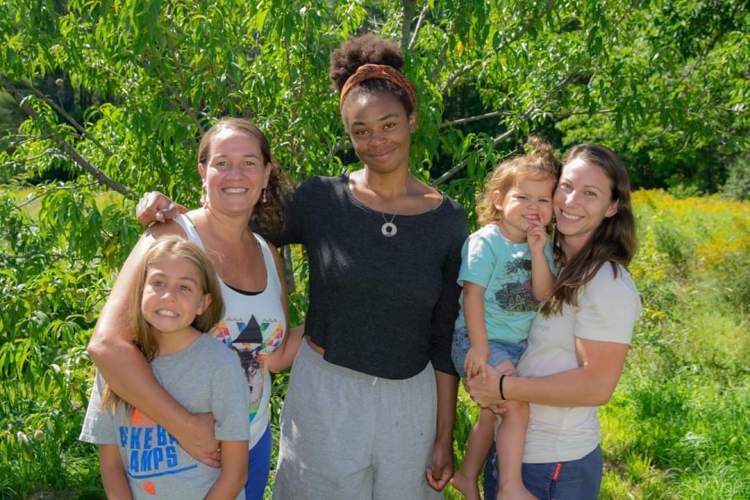Eastern Woodlands Rematriation Collective was founded in 2017 by Alivia Moore, a Maine-based Penobscot, and two Indigenous women from Massachusetts.
The Collective serves Abenaki, Maliseet, Mi’kmaq, Passamaquoddy and Penobscot peoples in the U.S. and Canada in many ways, but a significant part of their work is preserving Indigenous agricultural practices, including building food sovereignty. A sovereign food system is when the people who produce, dis- tribute and eat the food also control the policies that run the system. It is a pillar of contemporary, Indigenous liberation movements.
Rematriation is a global political, social and environmental movement led by Indigenous women and two-spirit people. “Two-spirit” refers to a person who identifies as having both a masculine and a feminine spirit. The term is used by some Indigenous people to describe their sexual, gender and/or spiritual identity.
“At the root of so many of our structures, it comes down to our relationship to the earth,” Alivia Moore said in an interview, describing the the Collective’s strategies for building Indigenous self-sufficiency in the Northeast. Moore, who is two-spirit, is based in Newport and focuses the majority of their individual efforts within their immediate surroundings.
“Most of what we are doing is not shared with outside communities,” Moore said. Each action the Collective undertakes, individually or together, “is about centering, valuing and uplifting indigenous folks” whether it is providing culturally appropriate grief counseling or helping people gain access to whole, unprocessed, traditional foods.
To build regional, intertribal relationships around food, the Collective connects Indigenous food producers and Indigenous farm owners as well as non-Indigenous private landowners to harvest, trade and transport seeds, trees, produce, fishing gear and other products across the Northeast region. The overarching methods Collective members use are based in agroecology, a farming system that prioritizes environmental well-being over profit maximization.
The Collective also spreads knowledge to the next generation, arranging apprenticeships and lessons between native-owned farms and young people in New England to teach traditional cultivation and farming practices. Last winter they received funding from the Elmina B. Sewall Foundation to develop a school for children and families that includes educational programming on farming and foraging.
“Our children are always with us,” said Moore, describing how young people are always learning through hands-on experiences such as harvest preservation. The school “gives us time to slow down and give them space to sit and learn and teach each other.”
The collective also administers the Wabanaki Community Herbal Apothecary, a decentralized library of raw and processed traditional medicines, like sumac or rose hips. During the COVID-19 pandemic, they’ve used the inter-tribal network, which crosses Indigenous territories, to provide food and apothecary items to elders and families in need.
As part of a global effort to protect our environment from climate change, Eastern Woodlands Rematriation Collective’s work to restore sustainable, agricultural economies helps build a future where Indigenous people’s knowledge and skills are valued and women and two-spirit leaders are restored to historic roles of leadership.
Copy the Story LinkComments are not available on this story.
Send questions/comments to the editors.


